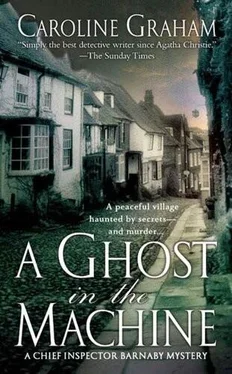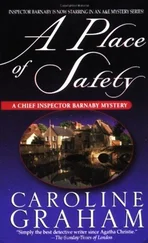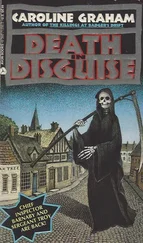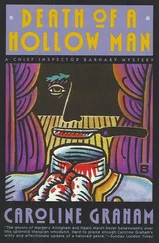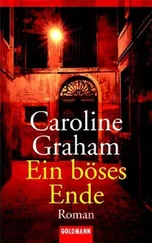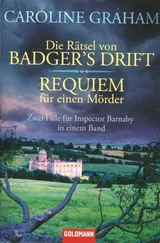The funeral was held on a rather breezy summer’s afternoon. Mallory, Kate and Polly accepted condolences as a packed church slowly emptied and the organist played “The day Thou gavest, Lord, is ended.”
Almost all the village had been present, as well as those of Aunt Carey’s friends and relatives that still survived. One elderly man in a wheelchair had been driven down from Aberdeen. Mallory was moved but not surprised at this group display of affectionate mourning. His aunt, though perhaps not easy to love, was almost impossible to dislike.
The Lawsons stood at the graveside for a little while when everyone else either went home or over to Appleby House. And Mallory, who had always thought the knowledge that someone had had a long and largely happy life would make their death easier to bear, discovered he was wrong. But he was glad it had been sudden even as he regretted this meant he had had no chance to say goodbye. She would not have coped well with a slow and painful decline. He sensed that Kate, who had been very fond of the old lady, was silently crying. Polly, only there because of what she described as “emotional arm-wrestling,” stood a few feet away from her parents, trying to look sympathetic while impatiently chewing her bottom lip. Genuine sorrow was beyond her, for she had not seen her great-aunt for some years and was not into faking stuff just to make other people feel better.
They made their slow way back to where the baked meats were being consumed along with stone jars of apple wine made from fruit gathered in the orchard that gave the house its name. Everything had been organised by Benny Frayle, companion to the deceased, who had refused all help. Benny was desperate for something to fill these first days. The worst days. She had whirled and bustled and flung herself about; a grief-stricken Dervish, never still.
Though the already extremely large rooms on the ground floor had had their dividing louvre doors folded back, people had started spilling out on to the terrace and into the garden. Two girls from the village in jeans and Oasis T-shirts were handing round trays of knobbly-looking dark brown bits and greyish twists of pastry. Most people were drinking, though the punchbowl, holding a non-alcoholic fruit cup, had been hardly touched. Everyone seemed to be knocking back the home-made apple wine. Fair enough. Most of the mourners would be walking home and those who had travelled some distance would be returning to their hotel at nearby Princes Risborough by cab.
You could not mistake the fact, thought Kate, looking about her at the far from soberly dressed crowd, that most of the people present seemed to be rather enjoying themselves. What was it about funerals? The obvious answer – that everyone present had been suddenly shocked into gratified elation at their own survival – was surely not all there was to it. Anyway, sorrow could wear more than one face. There was Mrs. Crudge, cleaner at Appleby House for thirty years. Just a few hours ago crying her heart out in the kitchen; now smiling and chatting while nervously twitching at folds of black veiling clumsily pinned to a shapeless felt hat.
The Lawsons had been down at Forbes Abbot for five days. Already Kate, taking some wine over to Mallory, noticed the difference in him. It was infinitesimal in such a short time – no one else would mark it – but she touched his forearm, and the tendons, taut as violin strings for as long as she could remember, gave a little under her hand.
“That stuff is utterly disabling,” said Mallory, nevertheless taking the glass. “I know it of old.”
“Do you think we should circulate?” asked Kate.
“As chief mourners I think people should come and file past us,” said Polly. “Like at a Greek wedding.”
Perhaps if she stood still long enough and smiled sweetly enough someone might come and pin money on her. It would have to be a lot of money because she owed a lot of money. An awful lot. With compound interest making it aw-fuller by the day, if not the hour. Swelling, like a monstrous succubus in a jar. Angrily Polly attempted to wrench her thoughts back to the present. She had vowed to keep…what? Fear? No, Polly had never been afraid. Let’s just say to keep the image of the reptilian Billy Slaughter at bay. Squat, flat-eyed, repulsive to the touch. A flash from a childhood rhyme: “I know a man. What man? The man with the power. What power? The power of voodoo…”
Polly grappled with her mind, pinned it still, screwed it down and forced it to pay attention to the assembled throng. She took in every detail – clothes, jewellery, mannerisms, voices – and decided they were a bunch of real saddoes. Average age seventy; not so much dressed as upholstered and held together with Steradent. At the thought of all those clacking dentures Polly burst out laughing.
“Polly!”
“Whoops. Sorry. Sorry, Dad.”
He looked dreadfully upset. Polly, suddenly contrite, vowed to make amends. What would please him most? Make him proud of her? She decided to mingle. She would not only mingle, she would be absolutely charming to everyone, no matter how decayed or unintelligible. And if it made her father more amenable next time she asked for help – well, that would be a bonus. Her face, now transformed, became wanly sensitive. Her smile almost spiritual. She murmured, “Catch you later,” to her parents and melted into the throng.
Polly knew hardly any of the people present, though several remembered her visiting her great-aunt as a little girl. One or two reminisced about this, often at interminable length. At one point she sat next to an extremely eccentric cousin of Carey’s for a full five minutes, leaning deferentially close and noting the old woman’s phrases and mannerisms, planning to imitate them later for the entertainment of others.
The vicar hove to – a portly figure, neither old nor young. He had a lot of soft, light brown hair of the sort described on shampoo bottles as flyaway. It certainly seemed to be doing its best at the moment, lifting and stirring about his head like a lively halo. He laid a damp hand on Polly’s wrist.
“Would you believe, my dear, Mrs. Crudge just asked me if I was enjoying the reception?”
Polly tried to look incredulous but found it hard. The question seemed to her both inoffensive and appropriate.
“Whatever happened to the word ‘wake’?”
“I don’t understand.”
“Exactly! Totally ‘out of print’ today.” He hooked quotation marks out of the air with his free hand. “And yet, how metaphysically apropos. For it is but a single letter removed from that happy state that dear Miss Lawson presently enjoys. A-wake in the arms of her Heavenly Father.”
Jesus, thought Polly. She removed the vicar’s hand from her arm.
“Look at Polly.” Mallory’s tone was fond. Plainly his daughter had already more than compensated for her earlier thoughtless behaviour.
“I think more than enough people are looking at Polly as it is.”
This was true. Nearly everyone – and not only the men – were looking at Polly while pretending not to. Mainly they were looking at her slender, never-ending legs in their sheeny black tights. She also wore a black linen, long-line jacket apparently over nothing at all. Polly’s skirt, usually no deeper than a cake frill, no doubt in deference to the gravity of the occasion was somewhat longer than usual. This one could almost have supported a soufflé.
Kate felt awkward then, feeling her terse comment had indicated resentment or, worse, jealousy of her daughter. Surely this couldn’t be true? As a small, gingery man came towards them across the grass she smiled a relieved greeting, welcoming the distraction.
“Dennis!” Mallory spoke with great warmth. “It’s good to see you.”
Читать дальше
